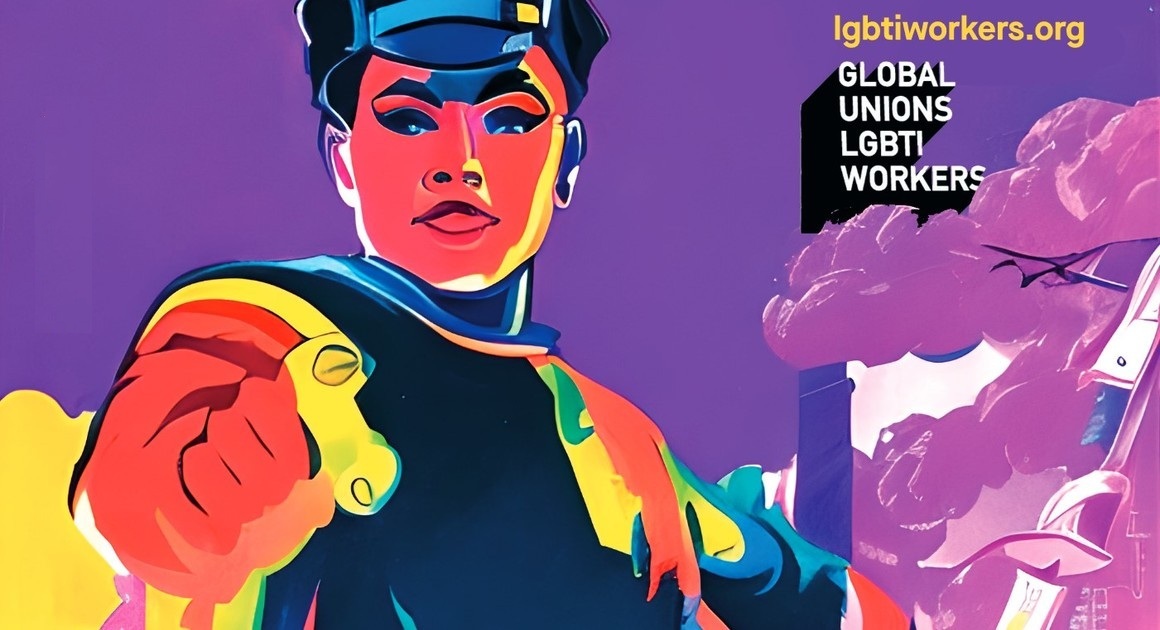- Tags (3)
20 November - Transgender Day of Remembrance Defending Trans People in the Workplace

November 20th is the International Transgender Day of Remembrance (TDoR) when we mourn our lost siblings and call for justice. It is also an opportunity to remember that an injury to one is an injury to all; trade unions have a duty to defend trans workers.
The rise of the far right in many countries has had a catastrophic effect on the rights of the Lesbian, Gay, Bisexual, Transgender and Intersex (LGBTI) community. Make no mistake, they will not stop at attacking the LGBTI community. Migrant workers are already in the firing line, and other marginalised groups will follow.
Figures just released by the Trans Murder Monitoring (TMM) project[1] for TDoR reveal that:
281 trans and gender diverse people were reported murdered between October 1, 2024 and September 30, 2025.
Sex workers (34%) remain the most targeted group of all known occupations.
There was a notable rise in murders of activists and trans-rights leaders, who are the second most targeted group by occupation this year, accounting for 14% of cases (up from 9% in 2024 and 6% in 2023).
68% of murders occurred in Latin America and the Caribbean; Brazil leads the list for the 18th consecutive year with 30% of total cases.
Echoing the pattern of previous years, 90% of reported murders were feminicides (victims were trans women or transfeminine people).
The update from TTM notes that while the number of 281 trans and gender diverse people murdered has declined since the 2024 update (350), this decline does not necessarily signal increased safety. More likely it reflects growing invisibility of these murders in media reporting—a trend that may be shaped by changes in search engine and social media algorithms or widespread media disinterest, which can make murders harder to identify and verify.
Solidarity is needed now more than ever - trade unions must continue to advocate for safe, inclusive workplaces for all workers
Concerns about the attacks on the trans community should not be limited to LGBTI spaces. These attacks impact everyone and represent the initial front in broader assaults on civil liberties and workers’ rights. It is the responsibility of the trade union movement across the world to ensure that it is understood that transphobic rhetoric is a way of attacking other protections and rights. Deeming certain groups undeserving of fundamental rights sets dangerous precedents which can be weaponised in other areas, such as collective bargaining, freedom of association, and workplace health and safety.
“History has taught us that we cannot remain silent. We call on everyone in society to take action in whatever capacity they can, to protect the lives of transgender and gender diverse people, to demand a better world where all lives are valued and respected.”
-- Michele Kessler, Chair of the CGU LGBTI Committee –
Trans rights are LGBTI rights, LGBTI rights are trade union rights, trade union rights are human rights.
[END]
This is a Council of Global Unions (CGU) Statement jointly signed by:
Building and Wood Workers’ International (BWI)
Education International (EI)
International Arts and Entertainment Alliance (IAEA)
IndustriALL Global Union
International Federation of Journalists (IFJ)
International Transport Workers’ Federation (ITF)
International Trade Union Confederation (ITUC)
International Union of Food, Agricultural, Hotel, Restaurant, Catering, Tobacco and Allied Workers' Associations (IUF)
Public Services International (PSI)
Trade Union Advisory Committee to the OECD (TUAC)
UNI Global Union
International Domestic Workers’ Federation (IDWF)
[1] Trans Murder Monitoring 2025 (TMM) is a project of Transgender Europe (TGEU). It tracks the murders of trans and gender diverse people globally. Since it was launched in 2009, TMM) has recorded 5322 murders worldwide.
NOTE: These figures do not include deaths occurring due to lack of healthcare, suicide, overdose, unreported murders and disproportionate exposure to HIV/AIDS, sexually transmitted infections and violence which indirectly result in death.
